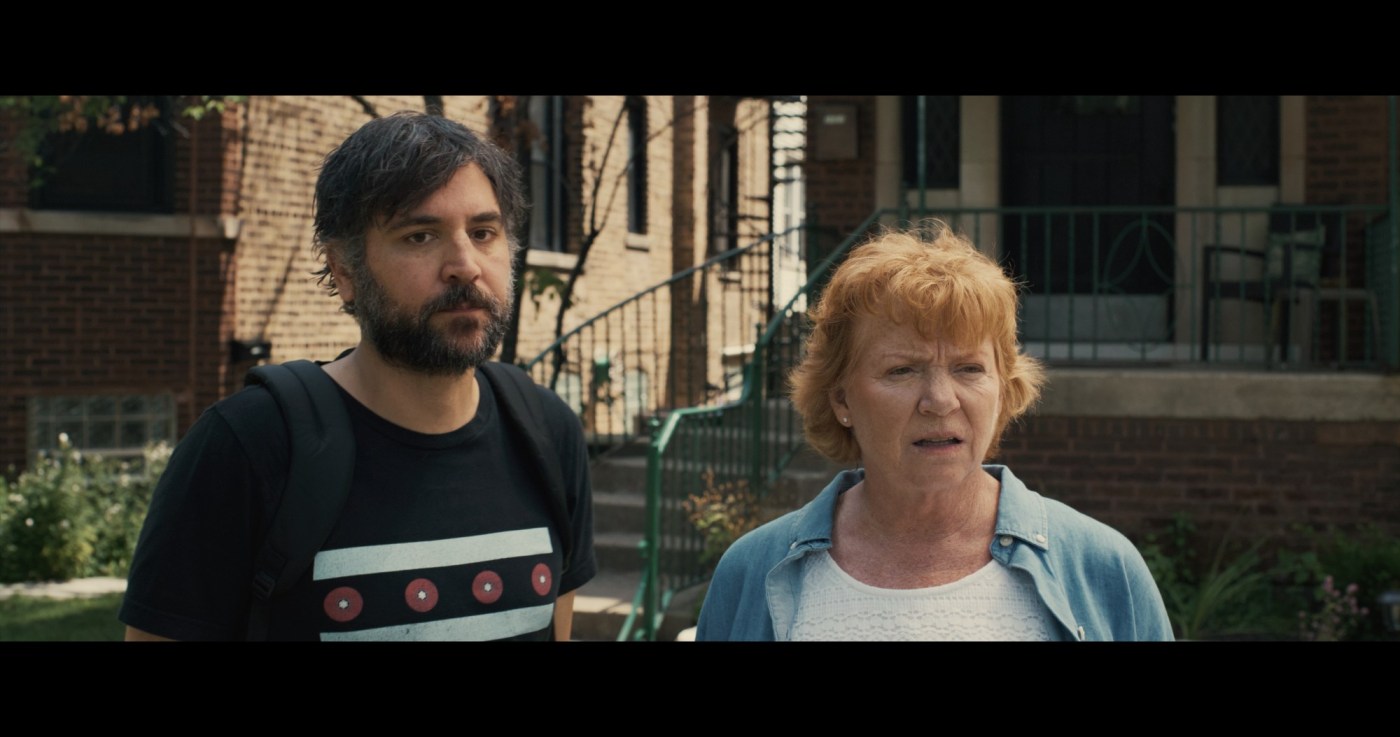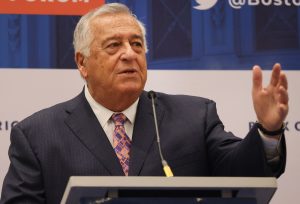
‘All Happy Families’ review: Disappointing men, wised-up women and a Chicago family’s growing pains
I like “All Happy Families” enough to want a little more of its better stuff, and a little less of the lesser. But with actors as good as Becky Ann Baker — wonderful as the recently retired, no-guff matriarch of a guff-prone Chicago family — co-writer and director Haroula Rose’s second feature keeps one foot in easygoing naturalism. Baker’s voluminous resume goes all the way back to a 1981 Broadway production of “Best Little Whorehouse in Texas,” as well as TV’s “Freaks & Geeks” and “Girls” and dozens and dozens more.
“All Happy Families” goes out of its way to rig up a karaoke scene, in which Baker’s voice still sounds like a million and change. Better still, in the rest of this efficient if overpacked dramedy now in theaters, she has a way of getting on with things, truly and well, so that you believe even the material you don’t believe.
At the outset, the Landrys have reached various crossroads. Fortyish, half-heartedly struggling actor Graham (Josh Radnor of “How I Met Your Mother”) is looking for a tenant for the upstairs unit in his family’s two-flat, where he grew up. It’s now owned by his semi-famous actor brother, Will (Rob Huebel), a regular on a hit TV series where he plays the wisest, most empathetic father on the planet.
Graham, who also writes, is going nowhere at an indeterminate speed careerwise and otherwise. Will, the outrageously arrogant master of the backhanded compliment, brings out the jealous streak in his brother, who’s taken aback by Will’s unscheduled return from Los Angeles under secretive circumstances. Sue and perma-cranky husband Roy rolled out into the open in due course. Sue has just retired from her longtime real estate firm, her going-away party undermined by her boss (David Pasquesi) grabbing her breast mid-goodbye hug. This is followed by an immediate not-really-an-apology and then a badgering series of pathetic phone calls. (Baker’s response to the incident, mixing disdain, alarm and deft underplaying, couldn’t be better.)
If there’s an underlined theme in “All Happy Families,” beyond the infinite variety of unhappy families set up by a title borrowed (with on-screen quotation and credit to Leo Tolstoy) from “Anna Karenina,” it’s the way Sue and the other female characters live and waste valuable time in the familiar company of men who remain little boys, lost. Unlike his reckless and possibly criminal brother, Graham at least treats women with some respect, even if he can’t get unstuck — at least until the reappearance of an old college flame (Chandra Russell of “South Side,” terrific in a too-small role) now working as a chef and looking for a place to rent.
There’s more: Sue’s husband Roy (John Ashton, very good, and an alum of director Rose’s effectively moody debut feature, “Once Upon a River”) may have addiction issues. Will’s teenage son is newly out as trans, now named Evie (Ivy O’Brien), showing up later in the film on the two-flat’s stoop, looking for some support and understanding. This leads to a brief, moving encounter later on, with Sue forthrightly but sensitively learning enough about her grandchild’s news to give Evie a place to hang her heart.
The script’s conflicts and obstacles get their tidy share of the available 90 minutes. I’d love to see a two-hour version of Rose’s film, aired out to some degree, with a more unpredictable rhythm and some conversations allowing us to hang out with these people without worrying about advancing the story. I say this as someone whose tastes in mainstream movies grew out of ’70s commercial filmmaking, which was not like filmmaking today, or any other day. Some of that era’s studio pictures were great, many dull or worse, most of them somewhere in-between. But often, and rewardingly, plot and narrative mechanics took a back seat to a detour worth a minute or two, or five.
Rose, a musician and performer as well as a writer and director, has a heartfelt and skillful curiosity about how knucklehead siblings can both aggravate and accommodate each other in tough times. She’s also compelled here by how a marital lifer like Sue can learn to draw a line or two for her own sanity before it’s too late. “Once Upon a River” and “All Happy Families” are different enough in style, approach and, well, everything to indicate a writer-director of intriguing flexibility and instincts. It’s not easy for filmmakers like that right now, if it ever was. Michael Shannon, who helped finance this project as an executive producer, served in the same capacity and took a supporting role for the 2018 Chicago-made ensemble affair “What They Had,” director Elizabeth Chomko’s bittersweet seriocomedy of family crises. That one had bigger names (Hilary Swank, Blythe Danner, the late, great Robert Forster) which does not, of course, automatically translate to bigger talents.
Rose’s next film might do well to create the role of a lifetime for Becky Ann Baker, for her sake as well as the audience’s.
“All Happy Families” — 2.5 stars (out of 4)
No MPA rating (some language)Running time: 1:30How to watch: Now in theaters; filmmaker Haroula Rose presents a Music Box Theatre screening at 6:30 p.m. Oct. 7; streaming premiere Oct. 18
Michael Phillips is a Tribune critic.

